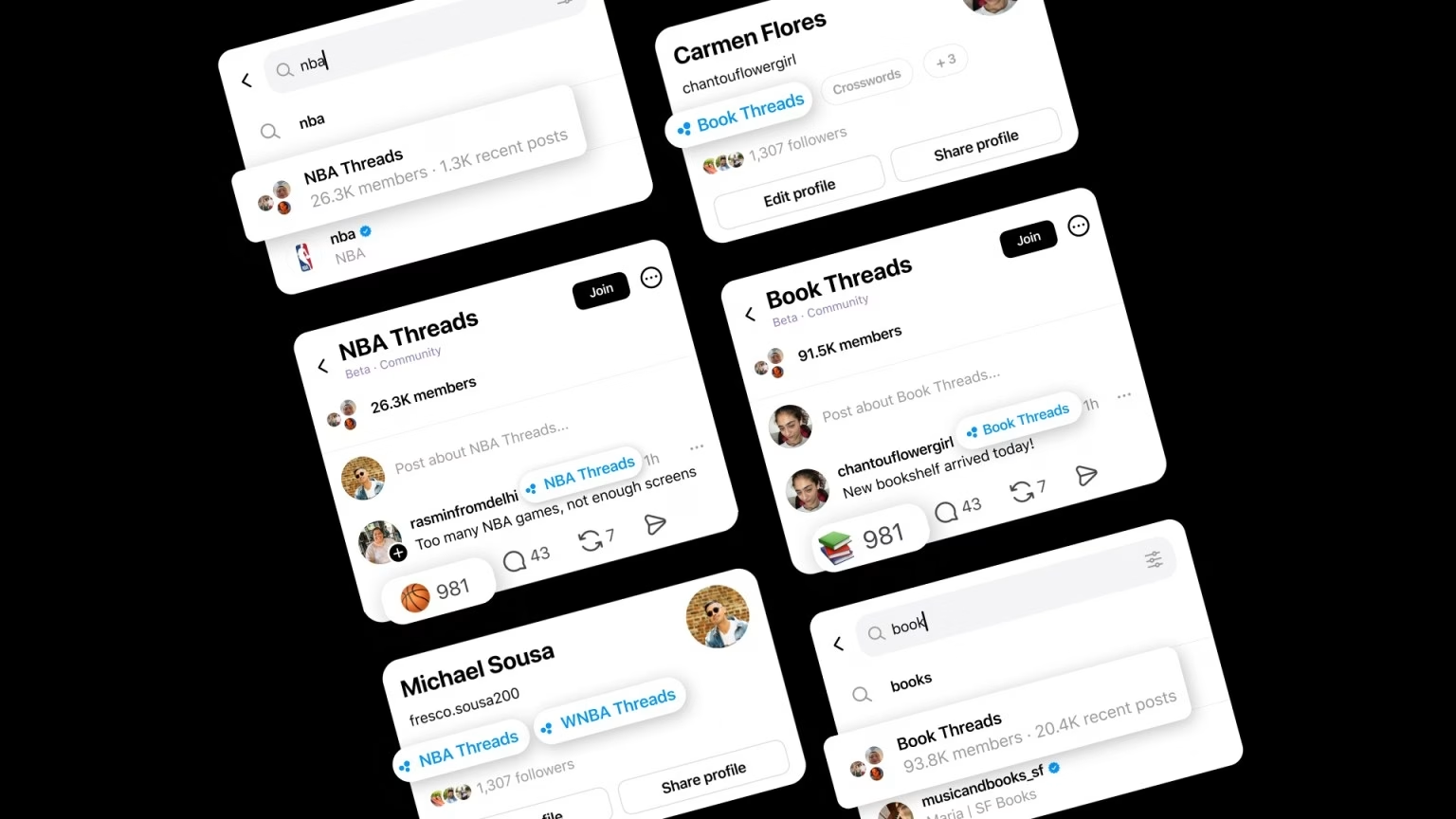Threads Unveils Communities Feature, Directly Challenging X's Group Dynamics
The rollout, which began as a global beta, makes these dedicated spaces available immediately to users on both iOS and Android devices. This isn't just a minor update; it represents a deliberate pivot by Meta to capture a segment of the social media market that craves focused interaction, a space where X has long held a dominant position. With over 200 million monthly active users by mid-2025, Threads has shown substantial growth since its July 2023 launch, but it's been searching for features that encourage sustained, niche conversations. Communities appear to be Meta's answer to that challenge.
Diving into the Threads Communities Experience
At its core, Threads Communities are designed to be public, casual spaces where users can connect over shared passions. Think of them as curated corners of the internet, distinct from the main feed's often-fleeting discussions. Meta has launched with over 100 pre-established communities spanning a wide spectrum of interests, from popular culture and sports to technology and niche hobbies. Early examples include dedicated spaces for NBA discussions, K-Pop fanbases, TV show recaps, and even more specialized interests like sustainable living or indie gaming.
Users can join multiple communities, participate by posting their own threads, and engage in real-time chats without the constant influx of unrelated content from their main feed. This focus on dedicated feeds, where posts are ranked by relevance and engagement rather than solely algorithmic push, is a key differentiator. Meta is touting a "smart ranking" system designed to prioritize quality conversations and minimize spam, a welcome prospect for many online.
Key Features and Differentiators
What sets Threads Communities apart? For starters, the emphasis is on a "casual vibe." While X's communities can sometimes feel more formal, Threads is encouraging emoji reactions and fluid, threaded replies. Admins and members have tools to customize their spaces, including setting community rules and inviting new members via shareable links. This blend of structured discussion and relaxed interaction is a delicate balance, but one that could resonate with a broad user base.
Integration with the broader Threads ecosystem is also a strong suit. Communities tie directly into existing features like favorites, replies, and reposts. Users can discover and follow communities directly from the app's explore tab, and notifications are designed to keep members informed without becoming overwhelming. Interestingly, Meta's engineering lead mentioned that AI plays a role in suggesting relevant communities based on user activity, aiming to streamline discovery and ensure users find their niche quickly.
The Competitive Landscape: Threads vs. X
It's impossible to discuss Threads Communities without acknowledging X's pioneering efforts in this space. X launched its own Communities feature back in 2021, allowing users to create and join topic-based groups. However, Threads is attempting to carve out its own identity by leveraging Meta's existing strengths. The seamless integration with Instagram, for instance, offers a potential cross-promotional advantage. Furthermore, Meta is emphasizing a focus on positive, moderated spaces, a stark contrast to the often-toxic environments that can plague other platforms.
Threads' approach to moderation, including AI-flagged content and enforcement by Meta's trust and safety teams, aims to create a more welcoming atmosphere from the outset. Experts are noting that Threads' communities feel more "feed-first," blending into the app's existing timeline, whereas X's can sometimes feel more siloed. This could be a significant draw for users seeking a less chaotic and ad-heavy experience. The timing of this launch is also noteworthy, coinciding with X's ongoing challenges following its 2024 algorithm changes, which have reportedly driven some creators to seek alternatives.
Early Reactions and Future Implications
The initial reception to Threads Communities appears to be largely positive. Tech analysts are already praising the feature as a "creator-friendly" tool, particularly for niches within music and entertainment. On Threads itself, early adopters are sharing screenshots of rapidly growing communities for popular topics, with one TV fan community reportedly garnering thousands of replies in its first 24 hours. This rapid engagement suggests a strong user appetite for this kind of focused interaction.
However, not everyone is without reservations. Some privacy advocates have raised concerns, citing Meta's historical data practices. Yet, despite these potential headwinds, the immediate backlash has been minimal. Beta testers are reporting a smoother user experience compared to X's equivalent, which could be a crucial factor in adoption.
Looking ahead, the launch of Communities is a pivotal moment for Threads. In a landscape increasingly focused on niche communities and AI-driven moderation, Meta is betting on user retention and deeper engagement. If Communities proves successful in driving sustained usage, it could significantly pressure X to innovate further, potentially igniting a new era of "community wars" on social media. For users, the promise is clear: more opportunities to connect with like-minded individuals without getting lost in the endless scroll. Threads is evolving, and it seems to be aiming to be more than just a Twitter clone; it's positioning itself as a genuine social hub.
